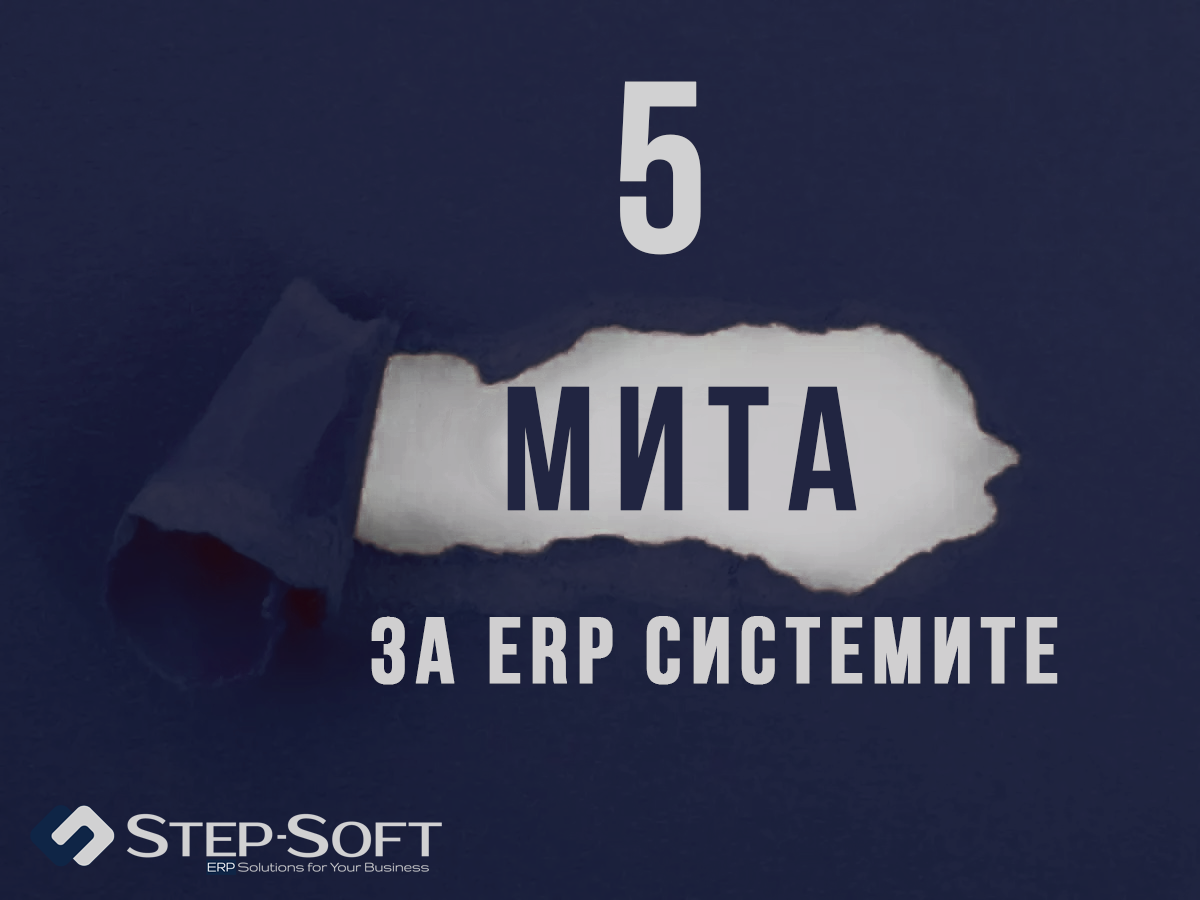
If you search the internet, you will find millions of articles about what Enterprise Resource Planning (ERP) software is, what it includes, customer reviews, and many more. But much of this information can be inaccurate or misleading.
These myths can become serious problems if you start implementing an ERP system for your business with the belief that they are true facts. Let’s look at five ERP myths you should be aware of:
#1. One ERP solution fits all companies in the industry
If you are a manufacturer, do not believe that any ERP system built for manufacturing companies will be suitable for your business. Each organization works differently and it is important to compare different ERP solutions and choose the one that is the most appropriate depending on the business requirements, trends, functionalities and characteristics of your company. The functionalities of the ERP system must be individually created depending on the specific business needs.
#2 ERP is for Big Business and Enterprises only
Although ERP systems were typically used by larger firms in the past, smaller businesses increasingly can explore Enterprise Resource Planning due to the growing options for customization through technological innovation. ERP solutions come in various shapes and sizes and are suitable for big corporations and for small startups.
#3 ERP is an IT system and belongs in the IT department
The implementation of Enterprise resource planning requires collaboration and input across departments and up and down the corporate hierarchy, from the staff to the CEO. So, while information technology (IT) is an integral part of ERP implementation and maintenance, each and every business function has a role to play in the success of enterprise resource planning.
#4 "Standardized processes" means one way of working
Standardization is one of the central reasons for implementing an ERP system: to establish common ways of working that permit comparability and interoperability. Standardization is a mean to simplify processes, eliminate inefficiencies and unneeded variability, and reduce operating costs. For users, ERP provides a common language, aggregated data that is easy to compare and analyze thanks to many types of reports.
#5 ERP systems are expensive and Take a long time to implement
While this might’ve been true before, with complex ERP systems taking too much time to install, it is no longer the case. The ERP software is designed to be with intuitive and adaptable interface, in order to shorten the time for implementation and staff training.
In terms of price, it varies depending on the selected type of ERP software. For example, if many additional extensions are needed, a modular system can be expensive. On the other side an integrated solution can cost less. Before deciding which type of ERP to buy, always ask yourself how much will it cost if additional features are required? Larger solutions can be a significant investment , but you have to keep in mind that in the long run they can be more efficient and in fact more economical.
There are many myths about the implementation, functionality, advantages and disadvantages of ERP systems that can deceive you. If you are interested in learning more or considering integrating enterprise resource planning software into your company, our advice is to consult with an experienced professional so that you can make an adequate and informed decision.
If you have any queries about an ERP solution, you can talk to the experts at Step-Soft by calling them at (+3592) 971-1690, (+3592) 971-1691 or by sending an e-mail at office@stepsoft.bg, sales@stepsoft.bg.

